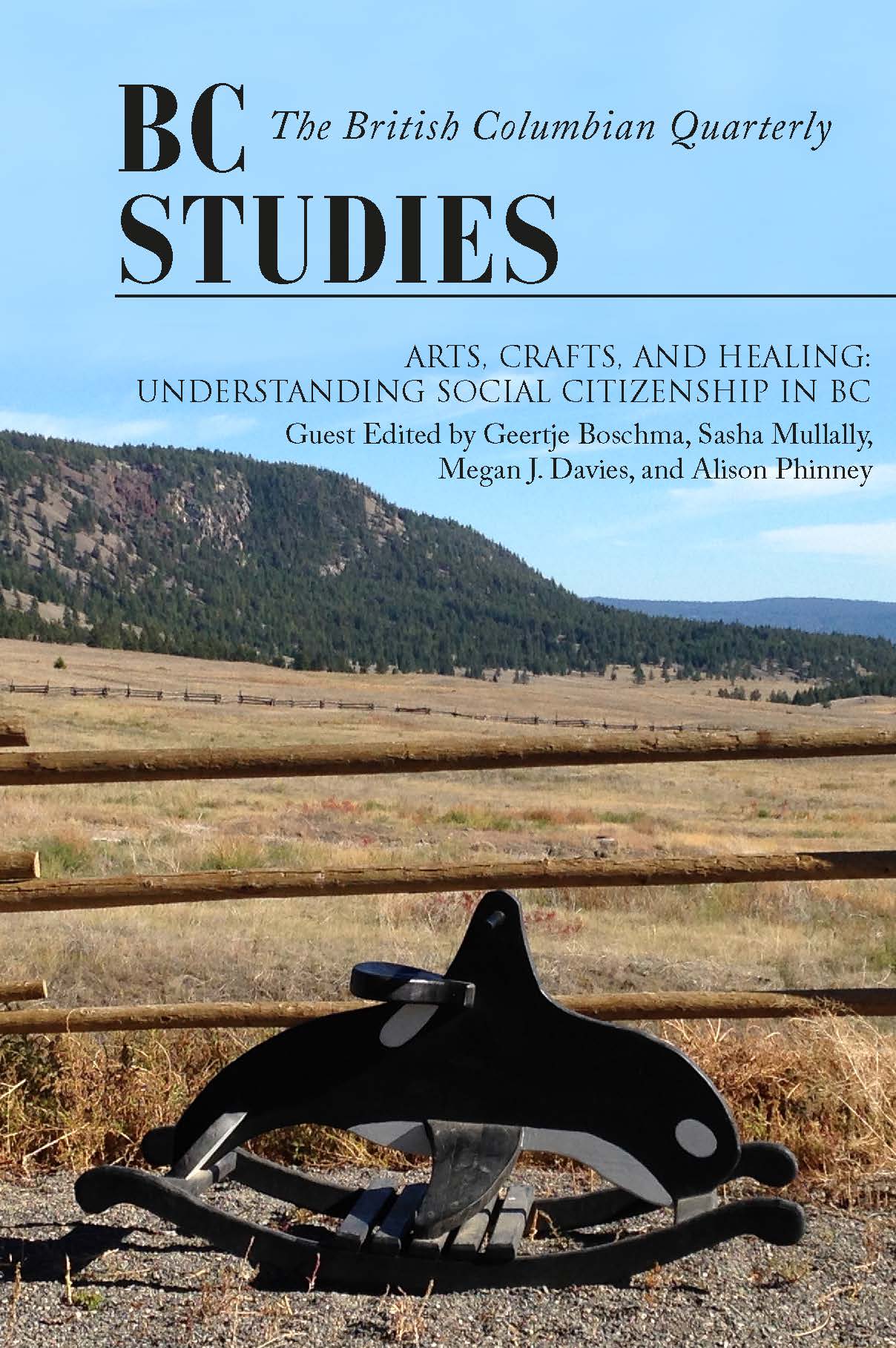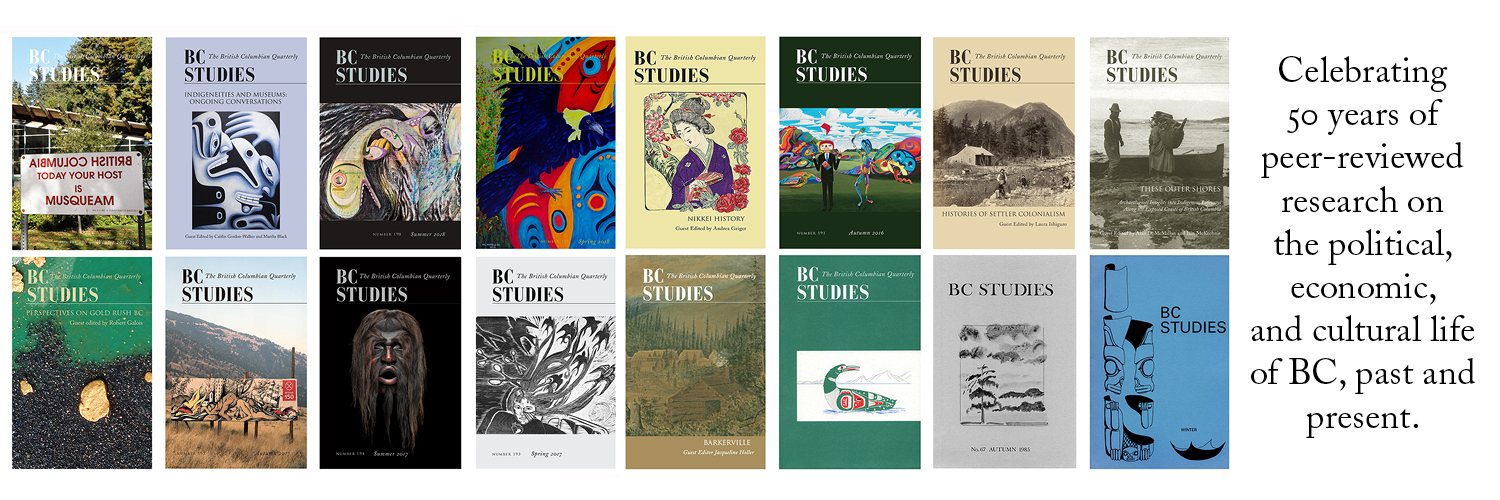Work 2 Give: Fostering Collective Citizenship through Artistic and Healing Spaces for Indigenous Inmates and Communities in British Columbia
DOI:
https://doi.org/10.14288/bcs.v0i202.190439Keywords:
art, Chilcotin people, indigenous worlds, prison and incarcerationAbstract
Therapeutic arts and crafts, as healing modalities, exist within specific historic and contemporary contexts. In this article we examine the positioning of productive and social citizenship for incarcerated Aboriginal men in federal prisons in British Columbia (BC) who participate in a prison employment and hobby program, wherein they build and create art-full objects that are subsequently donated to Aboriginal communities. This program provides insight into the ways that therapeutic arts and crafts have transformational impacts within a context where citizenship rightss are often considered conditional, and wherein incarcerated Aboriginal peoples’ lack of personal rights and freedoms is impacted by colonial forces that shape constructions of citizenship and productivity. Our aim is to contribute to the collective dialogue in this issue to shift the focus of arts programming from personal psychosocial well-being to how collective creativity within the prison context can foster social and cultural wellbeing and restoration for Aboriginal peoples in BC and beyond. We consider the transformational impacts made possible through therapeutic arts and crafts and the alternative possibilities of a more inclusive social citizenship to describe collective social identities for healing. Using Work 2 Give as an exemplar, we describe how forms of Aboriginal collective social citizenship, forged within a neocolonial era, can make space for the healing potential of therapeutic arts and craft in prison contexts. Drawing on Aboriginal understandings of health, healing, and community, Work 2 Give provides a window into how social citizenship can be considered through its interconnectivity with spirituality, giving to others, meaningful work, therapeutic art and holistic wellbeing within the wider context of colonialism and resurgence.



